 Research Highlights Health Benefits of Mushrooms as a Feed Additive in Poultry
01. 24. 2018
#Feed industry
Research Highlights Health Benefits of Mushrooms as a Feed Additive in Poultry
01. 24. 2018
#Feed industry

Last year two separate, yet significant, pieces of research found that mushrooms give numerous health benefits when used as a feed additive for poultry.
This should really come as no surprise, as the nutritional benefits of mushrooms have long been known, particularly in Asian cultures. As AllAboutFeed, editor, Emmy Koeleman, reported, “Just to name a few [benefits], edible mushrooms have antioxidant, immunostimulatory, anti-inflammatory, antibacterial, antiviral and hypocholesterolemic (an unusual deficiency of cholesterol in the blood) properties.”
The report, continues to note that, “In layer hen trials, it was shown that many of the findings indicate that the addition of mushrooms, which are rich in a variety of secondary metabolites, can raise the antioxidant status of the organism, positively influence laying performance, egg quality, fatty acid composition and cholesterol level in yolk lipids, suppress pathogenic bacteria and even faecal NH3 emission.”
In fact, back in early 2009, an American based company, Total Nutraceutical Solutions, Inc, began using mushroom substrate (the ‘soil’ in which edible mushrooms are farmed) as a raw material for feed additives. Today, the company continues to support the health benefits of mushrooms, with Marvin S. Hausman MD, CEO at Total Nutraceutical Solutions, stating that, “These bioactive nutrients and enzymes may act as natural potent anti-oxidants and anti-inflammatory agents to increase the nutritional value of animal food products. The nutrients may also prevent various diseases that afflict animals in the food chain as well as many humans.”
Now a further study, this time by researchers from Mexico, have found that the edible mushroom Pleurotus ostreatus, also known as the Oyster mushroom had a positive effect on farmed quail. A fact reported in the feed industry journal, FeedNavigator, in January 2018, when it stated that, “Adding mushroom supplements to the diets of farm-raised quail may improve meat quality and lipid stability.”
The report has now been published in the journal Livestock Science. It notes that mushrooms, “possess nutritional components such as carbohydrates, protein, fat, fiber (insoluble and soluble) and minerals (phosphorus and calcium), as well as sugars, essential amino acids (histidine, isoleucine, leucine, lysine, methionine, phenylalanine, threonine, and valine) and fatty acids (linoleic and linolenic acid).”
In fact, a whole range of nutrition in one single additive. The overall affect being that there was, “an increase in meat quality parameters and antioxidant stability of quail breast meat because of dietary mushroom supplementation.” Adding that, “edible mushrooms should be considered for use as an alternative to commercially available antioxidants that are currently used as a feed supplement or incorporated directly into meat products.”
But the results do not yet mean that feed manufacturers should start adding oyster mushrooms to their mixtures just yet, as the study also found, “…no significant effects … were observed on performance and carcass characteristics.” And the fateful note, that, “…future experiments are required.”
Oyster mushrooms are not alone in providing health benefits for poultry. As a team of Polish researchers, based at the National Research Institute of Animal Production, noted in a study published in the scientific journal, Animal Feed Science and Technology. They state that, “Based on the results it can be concluded that many mushroom species e.g. Lentinula edodes, Agaricus bisporus, Agaricus blazei, Hericium caput-medusae, Pleurotus ostreatus, Pleurotus eryngii, Fomitella fraxinea, Flammulina velutipes, Ganoderma lucidum, Cordyceps inensis and Cordyceps militaris can be the source of active substances that might positively affect poultry performance and health status.”
Mushrooms it seems make a great poultry feed additive.
The impact of the studies is now being measured, with varying scepticism among feed experts. Some believe that, given their anti-oxidant abilities, mushrooms used as a feed additive could provide a useful tool in replacing antibiotics from poultry and livestock farming. Others question the cost efficiency of farming a product consumed by humans for use as chicken feed. Many see the ‘mushroom option’ as merely a passing trend.
However, the health benefits of mushrooms are a scientific fact, and the proof is mounting that they can substantially improve poultry performance, including carcass weight and breast size. While further studies into the economic viability of mushrooms as a feed additive are still needed, the wealth of evidence showing how they may make farm birds more disease free could well be the boost the poultry industry needs.
If you would like to know more about efficient animal feed additives, then please take a look at the AG CHEMI GROUP catalogue. Here you can read more about effective feed additives such as potassium chloride or monocalcium phosphate.
Alternatively, contact a sales team member directly:
Timur Khafizov, potassium chloride on +420 777 227 387 or timur.khafizov@agchemigroup.eu

Alexandra Chepak, monocalcium phosphate on +420 777 996 157 or alexandra.chepak@agchemigroup.eu

Photo credit: ScienceDirect, Harvesttotable, Modernfarmer, Agrifarming, TheSpiceHouse, JapanCentre & All4Desktop